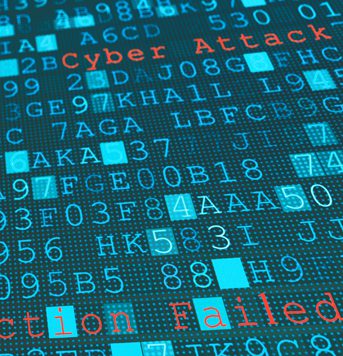With 2.8 billion malware attacks in just the first half of 2022, the threat to computer security isn’t showing any signs of slowing down.
As technology continues to evolve, malware is becoming more sophisticated — making it much more difficult to detect. With no comprehensive programs able to monitor all spyware on any device, it can be challenging to know whether your device is compromised.
Fortunately, there are some signs that you can look out for that may suggest your computer has malware on it — here are the top ten indicators:
10 Signs Your Computer Is Infected By Malware
– Your computer has slowed down: Trojan malware takes up a lot of CPU, RAM and hard disk processing, making your computer run significantly slower.
– You can’t access task manager: If nothing happens when you press Ctrl + Alt + Del, malware could have disabled your task manager, so you can’t see what programs are running on your computer.
– You get random pop-ups on your computer: Another significant sign of malware is strange pop-ups on your internet browser or desktop.
– Your webcam light is on: If your webcam is recording when you’re not using it, someone may be using malware to gain access to your camera and spy on you.
– Your browser redirects you: When you search for something online, but the search results display something completely different, your internet browser may be affected by malware.
– Your computer overheats more often: Devices will usually get warm when used for prolonged periods or when using certain programs. If you notice your computer overheating more often, it could signify that malware is taking up processing power.
– You don’t recognise installed programs on your computer: Many phishing scams trick you into installing software that looks legitimate but actually contains malware.
– You receive a ransomware notification: Receiving a notice that your device’s files are being held for ransom (usually bitcoin) is a clear sign that malware has compromised your computer security.
– Your browser has changed: Once hackers have passed your computer security measures, they will use the internet on your device to gain access to personal information like bank details, identification and passwords. If your homepage has changed, or there are toolbars and extensions that you didn’t install yourself, this could be a sign of malware.
– You’re logged out of websites you’re typically signed into: When your device is infected with malware, hackers will log you out of websites to try and see your password.
Boosting Your Computer Security
When it comes to malware, prevention is better than cure. Installing a comprehensive anti-virus system will bolster your mobile and computer security by scanning your device for malicious programs or suspicious files and maintaining a firewall against future potential malware infections.
You can also help to protect your computer by only visiting trusted websites on the internet and deleting suspicious emails.
Discover how to keep your devices safe from malware by reading more in our computer security archives.









